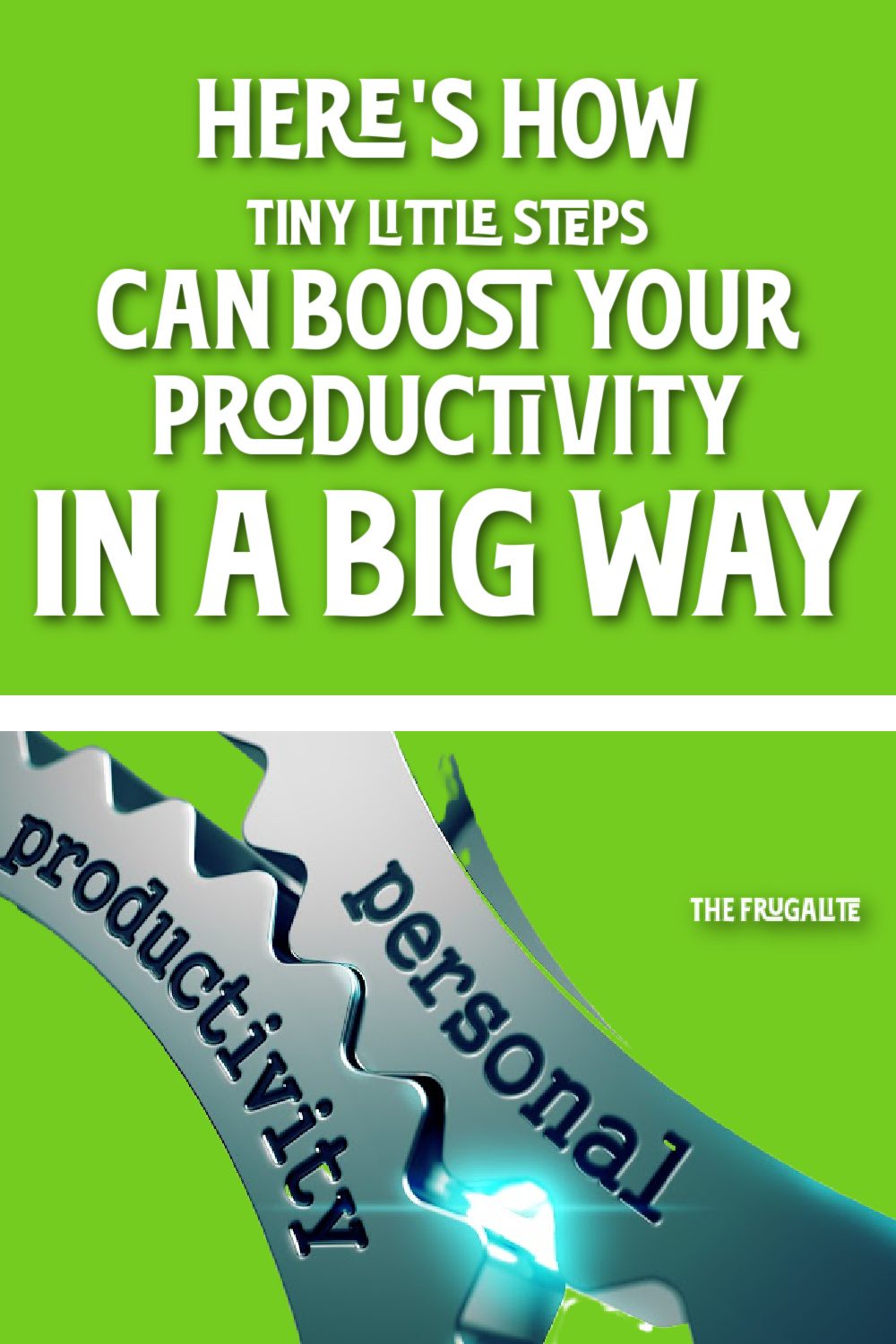(Psst: The FTC wants me to remind you that this website contains affiliate links. That means if you make a purchase from a link you click on, I might receive a small commission. This does not increase the price you’ll pay for that item nor does it decrease the awesomeness of the item. ~ Daisy)
By the author of What School Should Have Taught You and The Faithful Prepper.
Have you ever seen the movie The Pursuit of Happiness? It’s a heartbreaking film, and in it, Will Smith plays the character of real-time human Chris Gardner. It’s a rags-to-riches tale where Gardner – now homeless, wandering the streets with his son – does everything he can to land a job that will allow him to provide for his family.
Eventually, Gardner lands a position in a call center. He’s a tireless worker (he’s got quite the motivation – starvation) and learns that if he doesn’t put the phone down but instead just uses his spare hand to hit the ‘end call’ button, he can make X extra number of calls per day.
It’s just a little thing, but it boosts his productivity.
I like to read Joel Salatin.
Arguably the most famous modern farmer, Salatin runs Polyface Farm, has written a number of books, and has probably done more for the American farmer than anybody else out there right now. I can’t remember which of his books it is (I think it’s You Can Farm), but Joel mentions that one of the things that the aspiring farmer needs to do to truly run a productive farm is to always have something in each of his hands.
Are you walking out to feed the pigs? Then keep a bucket of feed in each hand. Need to weed the garden? Then take a hoe in one hand and a basket for harvesting in the other. He also points out the benefit of always keeping a 5-gallon bucket handy, as it allows you to carry more everywhere you go.
It’s a simple tip – to always keep each hand filled – but it results in the farmer needing to make fewer unnecessary trips around his farm, allows him to keep more energy, and ultimately allows him to get more done.
No empty hands. A simple tip that boosts productivity.
Henry Ford was known for incorporating the same into his business.

He made as many small, minute changes as possible to ensure that everything was as efficient and productive as possible. Maybe it was accomplished by moving a toolbox 3’ closer to the worker. Maybe giving everybody a different tool was the key. The point is that it was a series of small steps that ended up boosting productivity.
How do you build a retirement account?
Do you do it in one fell swoop, or does it take years of small, minuscule investments? It’s the little strokes that fell great oaks. In the same way, the little things that you can do on a daily basis can greatly improve your productivity in the long run.
So my question for you is this: what can you do – however small – to boost your productivity on a daily basis?
How can you make it so that you can land more gigs in the same amount of time? What could you do to make it so that you finish the jobs you get faster? What little step can you add to your routine that makes being productive and efficient as easy and as convenient as possible?
- Can you mentally ban yourself from social media until after 5 PM?
- Can you log out of your social media accounts on your computer, adding an extra layer of inconvenience should you decide you want to check them during the middle of the workday?

- Can you start to pack your lunch so that you can eat faster than is possible by having to visit the factory’s cafeteria?
- Is keeping all of your tools in the same place every day a great means of ensuring that you always have what you need to accomplish a job?
- Do you need to write out a paper checklist of everything you could possibly need before each job so that you don’t have to make yet another trip to Lowe’s?
- Will keeping a gym bag in the trunk of your car keep you from having to spend 45 minutes driving back home, grabbing your stuff, and then driving to the gym again? What could you do with that time instead?
- Can you get more accomplished if you just leave your phone in your car while you’re on the job, only checking it during breaks, during lunch, and when the job is finished?
I wouldn’t consider any of these to be drastic steps to boost your productivity.
They’re all relatively easy to incorporate into your life. And yet they can all help you to boost your daily productivity. They can all help you to be better about making the money you need to make during working hours so that you can pay off your debts sooner, spend more time with your family, and get to leave your work at work so that you can enjoy your time off the clock.
But hey, these are just a few of my thoughts on how you can boost your productivity. What are yours? Do you have other tiny tips you think can help somebody to do so? Let us know in the comments below.
About Aden
Aden Tate is a regular contributor to TheOrganicPrepper.com and TheFrugalite.com. Aden runs a micro-farm where he raises dairy goats, a pig, honeybees, meat chickens, laying chickens, tomatoes, mushrooms, and greens. Aden has four published books, What School Should Have Taught You, The Faithful Prepper, An Arm and a Leg, The Prepper’s Guide to Post-Disaster Communications, and Zombie Choices. You can find his podcast The Last American on Preppers’ Broadcasting Network.












4 thoughts on “Tiny Little Steps Can Boost Your Productivity in a BIG Way”
25 or so years ago a new barbershop moved into my town and set up their business phone number only one digit different from my home work desk phone number — so I get a lot of their customer mis-dials. In addition, my state is infamous for the volume of incoming robo calls. So I took some defensive action.
I set up an answering machine connected to that desk phone with a blind outgoing message that says only:
“Hello, and thanks for calling. At the tone, please leave your message or a way to get back to you as soon as possible.”
That freed up an enormous amount of time for me. My friends and business associates all understand … while the barbershop mis-dialers bail out immediately … as do the overwhelming majority of robo callers. Only a tiny fraction of the latter bother to leave any kind of message… which is invariably useless.
–Lewis
I gather things that need put in or returned to outside sheds in a box by my front door. If I’m heading to get or do something my trip out isn’t wasted. I’m putting something away.
I also pick up free or very cheap cans of nuts, bolts, screws etc and put the contents on a little area to be sorted into bins or other containers. If I take a tool to that shed I spend a minute or two sorting then leave. This way after a few trips with little loss of time the container has been sorted and items are stored ready to use.
This summer I picked up items for fishing and camping. Those items are being put in the box by the door. Each trip to or past the shed where those are stored I take some to put away. I’ve just sorted all electrical items into one shed and am working on a sorting out solar from the rest. Then all wire and wire related items into just one area. Then all boxes and plug ins will go together. And so on. It makes working quicker and easier when related things are together. Same for the gardening shed. Tools, seed starting items, all going there and on shelves in orderly fashion. Seeds in a well closed ice chest. Freezing is needed for some seeds to even sprout. And other dry seeds aren’t hurt by freezing so it’s there they all go. Then one shelf for my canners and related canning tools. Outside along one wall, away from the street, are old old refrigerators I’d have to pay to haul off. Instead they are wash clean and used to safely store canning jars on the shelves and doors.
A scrap bucket is on the floor next to where I prepare vegetables at the sink. Meal scraps go in the other bucket. Any trip toward the garden is a good excuse to grab a bucket and dump it on the compost pile or grab the other bucket for the chickens. The only exception is banana peelings. They dry in the garden shed then get dropped in a 5 gallon bucket with a lid. When plants are blooming in the garden the peelings are soaked a few at a time in a 30 gallon barrel to water plants setting fruit. I feed the garden at planting time with high nitrogen rabbit droppings. At bloom time the plants need potassium from the banana peels to successfully set fruit. During the gardening season that barrel sits out in the garden area. A pasta sauce can is my dipper. It sits in a bucket that is there hanging on a hook.
At 75 I aim to still accomplish a lot but save steps so I can do more. Anyone can find ways to be more efficient.
Thank you, Clergylady. I always appreciate your comments and wisdom.
Being organized is key to productivity. If you have to search for a tool, item etc., it is a huge waste of time. At times, having more than one of an item increases productivity – we have pruners in two places (one for each of us) which saves time by getting the pruners nearest where they are needed. If we both need them, we know where both are location. We have numerous other small (inexpensive) tools in two or three places (third being in the house). As we get older, being prudent re: energy expended is important.
I’ll keep my thoughts on Henry Ford to myself. But I’m reminded of a saying I believe was attributed to Satchel Paige – if you pitched as hard when you weren’t in trouble as you did when you were in trouble, you wouldn’t be in trouble in the first place.